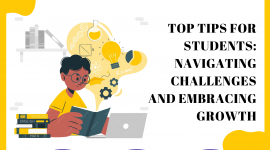Extracurricular activities are an integral part of a student’s holistic development, offering opportunities for personal growth, skill acquisition, and community engagement.
However, striking a balance between these activities and academic commitments can be challenging. This article emphasizes the importance of balancing extracurriculars and academics, how to pursue passions and academics, and the benefits of involvement. It also provides practical strategies for students to navigate these dual responsibilities.
The Benefits of Extracurricular Involvement and Pursue Passions and Academics
Participating in extracurricular activities goes beyond the immediate joy of engaging in a hobby or passion. It plays a crucial role in academic and personal development.
-
Academic and Personal Development
- Enhancing Time Management Skills: Juggling multiple commitments requires effective time management. Extracurricular involvement teaches students to prioritize tasks, meet deadlines, and develop a sense of responsibility.
- Building Leadership and Teamwork Skills: Many extracurricular activities involve collaboration and leadership roles, fostering interpersonal skills that are valuable both academically and professionally.
-
Enriching College Applications
- Demonstrating Well-Roundedness: Colleges and universities seek well-rounded individuals who can contribute to campus life. Active participation in diverse extracurriculars showcases a student’s versatility.
- Highlighting Specialized Skills: In addition to academic achievements, extracurriculars allow students to showcase specialized skills and passions that set them apart in the competitive college admissions process to pursue passions and academics.
Identifying Personal Passions and Interests

Before delving into extracurricular commitments, it’s essential for students to identify their passions and interests.
-
Self-Reflection and Goal-Setting
- Assessing Interests and Strengths: Reflecting on personal interests and strengths helps students make informed choices about the extracurricular activities they pursue.
- Setting Short-Term and Long-Term Goals: Establishing clear goals provides a roadmap for personal and academic growth, helping students prioritize their commitments.
-
Exploring a Variety of Extracurriculars
- Trying Different Activities: Students should explore various activities to discover what truly resonates with them. This exploration phase is crucial for finding the right balance between passion and skill development.
Time Management Strategies

Efficient time management is at the core of successfully how to pursue passions and academics.
-
Creating a Realistic Schedule
- Blocking Out Dedicated Study Time: Allocating specific periods for focused studying ensures that academic responsibilities are consistently addressed.
- Allocating Time for Extracurriculars: Designating time for extracurricular activities helps maintain a balance and prevents them from encroaching on academic commitments.
-
Prioritizing Tasks
- Identifying Urgent and Important Tasks: The Eisenhower Matrix can help students categorize tasks, distinguishing between urgent and important responsibilities.
- Balancing Immediate and Long-Term Goals: Striking a balance between short-term and long-term goals ensures that immediate deadlines are met without compromising future objectives.
Effective Communication and Collaboration

Open communication with stakeholders is essential for managing expectations and ensuring support.
-
Open Communication with Stakeholders
- Discussing Goals and Commitments with Parents: Transparent communication with parents about academic and extracurricular goals fosters understanding and support.
- Communicating with Teachers and Coaches: Keeping teachers and coaches informed about commitments helps build a collaborative environment where educators can provide guidance and support.
-
Collaborating with Peers
- Group Study Sessions: Collaborative studying enhances understanding and efficiency, combining academic responsibilities with social interaction.
- Teamwork in Extracurricular Projects: Engaging in group projects fosters teamwork and allows students to leverage each other’s strengths.
Avoiding Burnout

While the pursuit of passions is enriching, it’s essential to prevent burnout by recognizing and addressing signs of excessive stress.
-
Recognizing Signs of Burnout
- Physical and Emotional Exhaustion: Persistent fatigue and emotional exhaustion are indicators of burnout and should be addressed promptly.
- Decline in Academic Performance: A noticeable decline in academic performance may signify an unsustainable balance between academics and extracurriculars and to pursue passions and academics.
-
Implementing Self-Care Practices
- Taking Breaks and Rest Days: Scheduling regular breaks and rest days allows students to recharge both physically and mentally.
- Seeking Support from Mentors and Counselors: Establishing a support network, including mentors and school counselors, provides a safety net for students facing challenges.
Leveraging Extracurriculars for Academic Success

Extracurricular activities can complement academic pursuits, creating a synergistic relationship.
-
Integrating Passion into Academics and to pursue passions and academics
- Choosing Courses Aligned with Interests: Selecting courses that align with personal interests makes academic studies more engaging.
- Incorporating Extracurricular Achievements into Classwork: Drawing connections between extracurricular achievements and academic coursework enhances the overall learning experience.
-
Using Extracurriculars as Motivational Tools
- Setting Academic Milestones Linked to Achievements: Linking academic goals to extracurricular achievements provides additional motivation for success to pursue passions and acadamics.
- Finding Inspiration from Extracurricular Successes: Success in extracurricular pursuits can inspire students to excel academically, creating a positive feedback loop.
Balancing Academic Rigor and Extracurricular Commitments

-
Choosing the Right Academic Load
- Honors and AP Courses Considerations: Evaluating the demands of honors and AP courses and assessing individual capacity helps strike an optimal balance.
- Assessing Individual Capacity for Academic Rigor: Recognizing personal limits ensures that academic pursuits remain challenging yet manageable.
-
Flexible Learning Approaches
- Exploring Online Courses: Online courses offer flexibility, allowing students to tailor their academic schedules to accommodate extracurricular commitments.
- Participating in Blended Learning Models: Blended learning models provide a mix of in-person and online instruction, offering adaptability to diverse schedules.
Conclusion
In conclusion, balancing extracurriculars and academics to pursue passions and academics is a dynamic process that requires self-awareness, effective time management, and open communication.
The journey is not about sacrificing one for the other but finding harmony between passions and academic pursuits. The strategies outlined in this article aim to empower students to navigate this delicate balance successfully.









